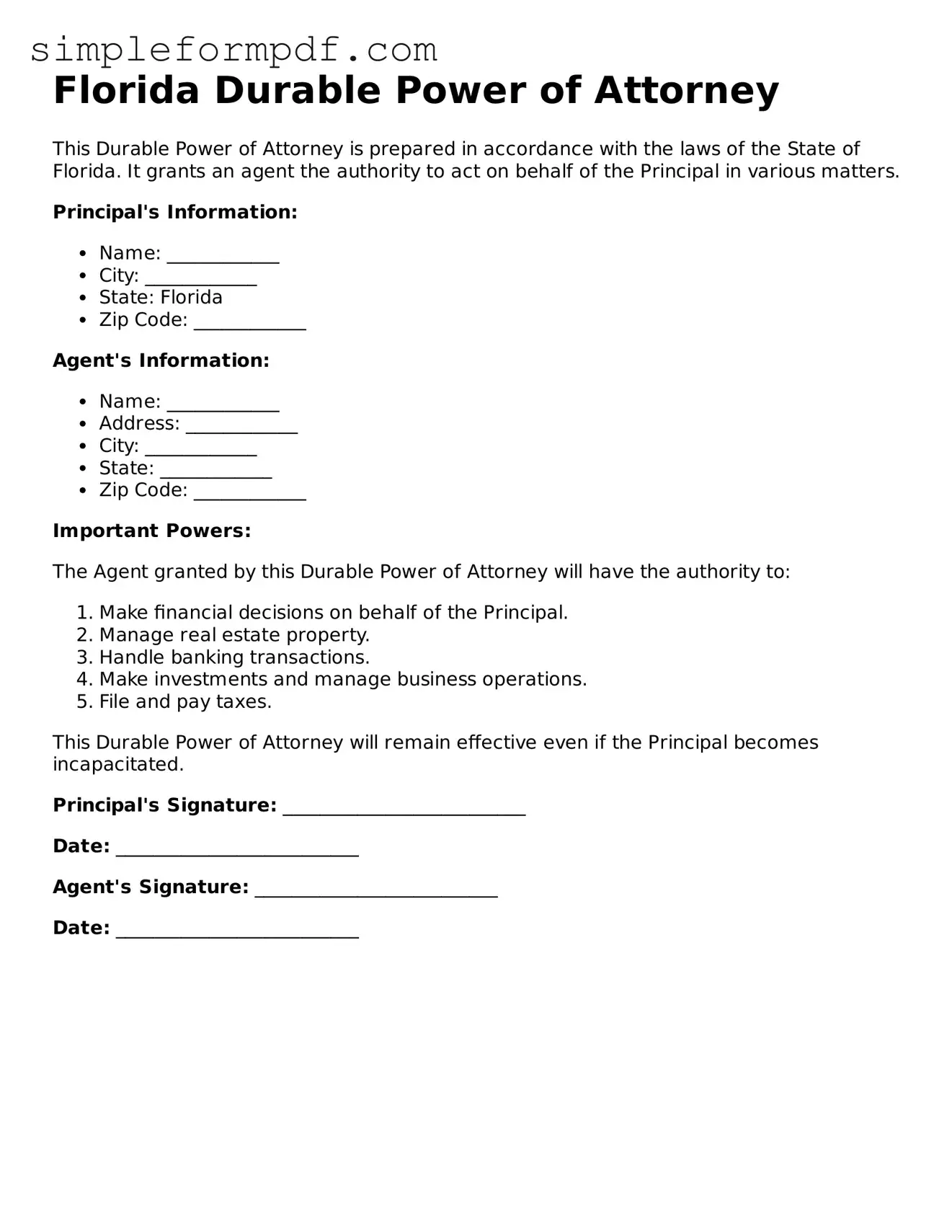Free Durable Power of Attorney Form for the State of Florida
A Florida Durable Power of Attorney form is a legal document that allows an individual, known as the principal, to designate another person, referred to as the agent, to make financial and legal decisions on their behalf. This form remains effective even if the principal becomes incapacitated, ensuring that their affairs can be managed without interruption. Understanding the importance and implications of this document is crucial for anyone considering its use.
Take control of your future today by filling out the Durable Power of Attorney form. Click the button below to get started.
Launch Editor

Free Durable Power of Attorney Form for the State of Florida
Launch Editor
Need instant form completion?
Finish Durable Power of Attorney online in just a few minutes.
Launch Editor
or
Download PDF
